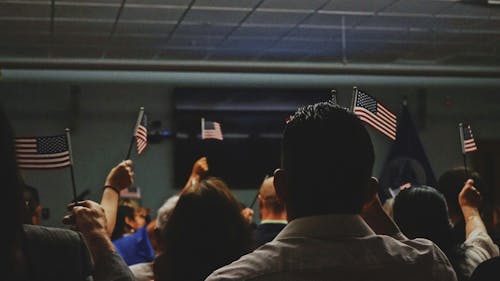JOSE: Cultural dissonance creates real mental health problems

As a person who has lived in the U.S. for a long time, I have tried to maintain a good connection with my Filipino heritage. But because I live in the U.S. and cannot consistently surround myself with Filipino culture, I feel as though I can never be completely connected to that part of myself. Even though I try to engage with my culture and heritage, part of it always seems out of reach.
This feeling occurred the other day when I watched an Instagram reel in Tagalog, a language I had not heard spoken with such fluency in years. It is strange to feel nostalgic toward something like the sound of a language. When you grow up speaking a completely different language, familiar sounds can bring up feelings of disconnect and longing. This experience is tied to cultural dissonance and acculturation.
Acculturation, also associated with assimilation, is a part of the immigrant experience, though you do not have to be an immigrant to relate to it. Understanding acculturation is important because it affects how a person views themselves within a culture, and how they might feel out of place due to it.
Up until the 1960s, assimilation was thought of in a cycle known as "straight-line assimilation." In this theory, the first generation would physically struggle, the second would "awkwardly juggle two cultures" and the third would successfully integrate with the dominant culture. Thus in three generations, it was believed that new Americans could be made.
But due to the invigoration of racial and ethnic identities during the 1960s, many groups became proud of their personal heritage and wanted to hold on to it. Coupled with greater civil rights, the process of "straight-line assimilation" has become completely inaccurate.
It is clear that people are proud of their identities and want to hold onto their cultural heritage. But this does not mean that they do not also want to participate in or even belong to the dominant culture.
Struggling to balance two cultures and not feeling too much like one or the other is something that can create "rejection" from both ends. As a result, a multicultural background could also mean a struggle to find community.
Due to the highly personal nature of these kinds of experiences, there are many ways one could react to this kind of situation. From fully immersing into one culture or code-switching between each, reactions toward cultural dissonance seem to exist on a spectrum. But no option is easy, and it looks like no matter how a person might choose to cope, discomfort lingers around every corner.
It seems a bit ironic because you would think a person who is able to understand more than one culture would be accepted by more people. But in reality, the exact opposite is true, and people who exist at this cultural intersection are isolated because they just cannot fit neatly into a single box.
This discomfort can create feelings of isolation and loneliness, which can be detrimental to a person's mental health. All this comes with having to also deal with things like racism and xenophobia, as well as the general stressors of everyday life, making it all the more difficult to navigate the world as a person balancing a multi-cultural existence.
But in trying to understand cultural dissonance and acculturation, we discover that there is a larger discussion in regard to mental health, which is necessary, especially among immigrant and minority communities.
Based on the aforementioned reasons, we can begin to think about why mental health struggles are usually more prevalent among immigrants and minority populations. Even if these experiences are highly individual, we can still observe the common factors that affect mental health in these groups.
In discussing acculturation and cultural dissonance, we can begin to talk about the importance of mental health and how having a supportive community plays a part in it. Mental health is a difficult subject, especially in immigrant circles. And when it feels like nobody can relate to what you are going through, opening up about struggles with personal and cultural identity can be difficult.
This is why we need to keep talking about concepts like acculturation and cultural dissonance, because they create real problems which can affect a person's health. And by talking about these issues, we can create spaces for people to feel comfortable in their identity struggles, while also breaking down stigmas about mental health.
Amelia Jose is a junior in the School of Arts and Sciences majoring in Political Science and minoring in International and Global Studies and Art History. Jose's column "Sip and Chat" runs on alternate Thursdays, and is best enjoyed with something to drink as you read.
Columns, cartoons, letters and commentaries do not necessarily reflect the views of the Targum Publishing Company or its staff.
YOUR VOICE | The Daily Targum welcomes submissions from all readers. Letters to the editor must be between 350 and 600 words. Commentaries must be between 600 and 900 words. All authors must include their name, phone number, class year and college affiliation or department to be considered for publication. Please submit via email to oped@dailytargum.com and eic@dailytargum.com to be considered for publication.



